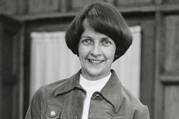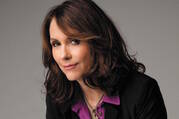Loading...
Click here if you don’t see subscription options
Click here if you don’t see subscription options

FaithNews
On Monday, the Synod of Bishops will publish the final synodal document on how local churches can implement the Synod's proposals, with Pope Leo's encouragement.

FaithScripture Reflections
A Reflection for Wednesday of the Thirteenth Week in Ordinary Time, by Kevin Clarke

Arts & CultureCatholic Book Club
A leading figure in academic Catholic feminism after the Second Vatican Council, Anne E. Carr was also a renowned scholar and an inspiration to generations of theologians.

FaithNews Analysis
At the time of his appointment as prefect of the Dicastery for Bishops in 2023, then-Cardinal Robert Prevost described in an interview one change he would like to see in the bishop selection process: greater involvement of lay people.

FaithPodcasts
“One of the things I find most appealing about the award-winning writer and poet Mary Karr is her forthright, almost brutal, honesty.”

FaithScripture Reflections
A Reflection for Tuesday of the Thirteenth Week in Ordinary Time, by Valerie Schultz

FaithNews
Pope Leo XIV urged new archbishops to help him foster unity in a church rich in diversity. Eight of those new archbishops are from the United States, and they spoke to Catholic News Service about how they can help promote fraternity in today’s polarized world.

FaithPodcasts
This week on “Jesuitical,” Zac and Ashley chat with Christopher White about his new book, ‘Pope Leo XVI: Inside the Conclave and the Dawn of a New Papacy.’

FaithInterviews
Kerry Weber is an executive editor for America. On May 20, 2025, the Catholic Media Association announced that she was elected president of the organization.

FaithScripture Reflections
A Reflection for Monday of the Thirteenth Week in Ordinary Time, by Jill Rice
